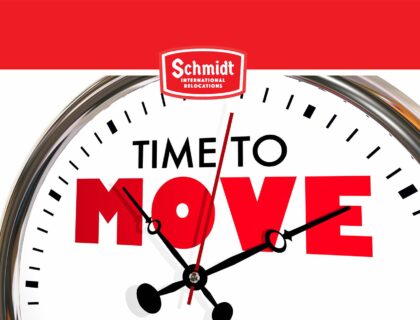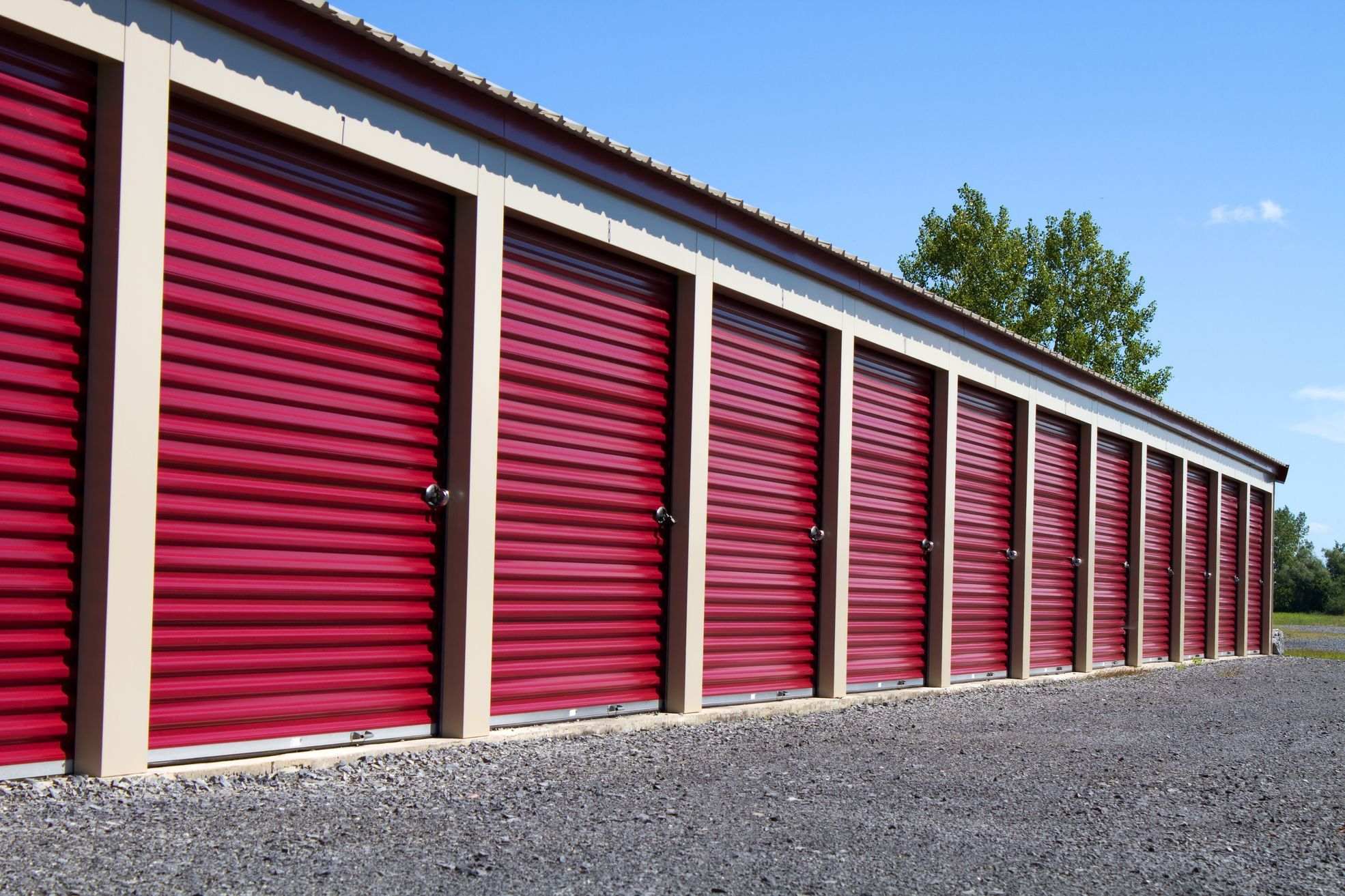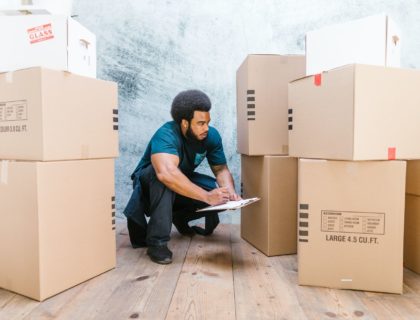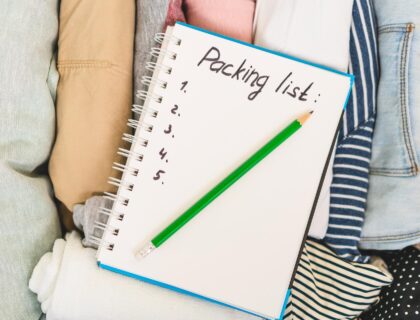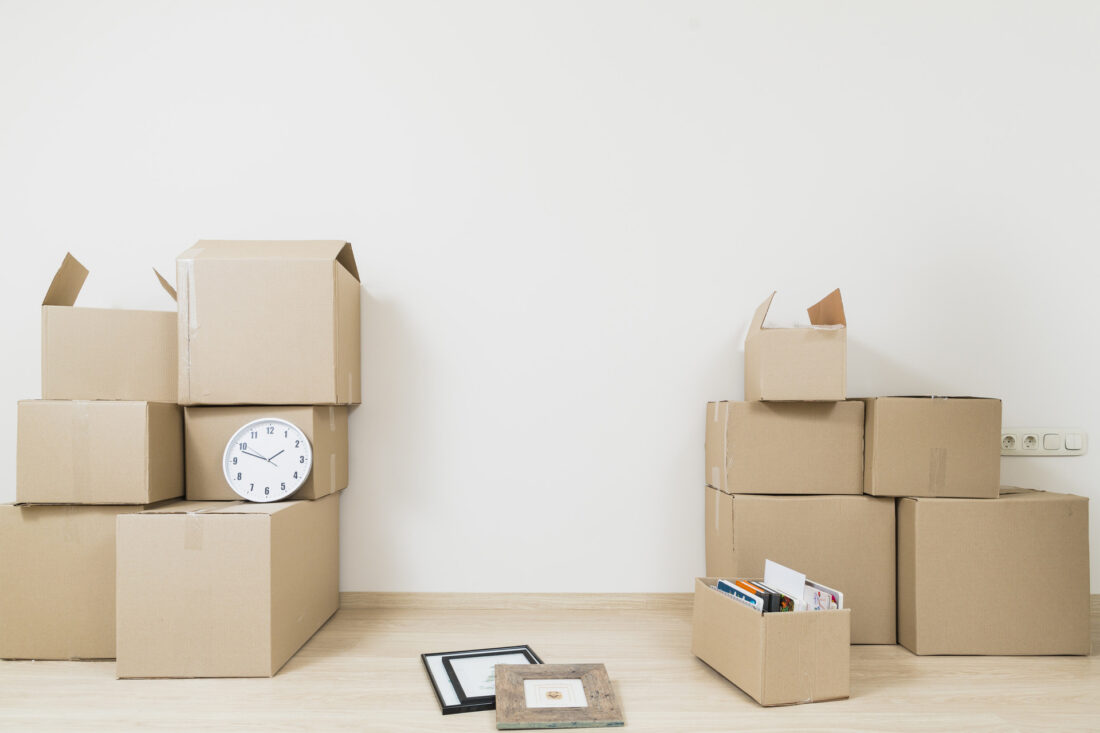

Timing is everything, especially when it comes to the daunting task of moving. The process of boxing up one’s life can seem overwhelming, but knowing when to start packing for a move can significantly ease this transition. The key to a smooth relocation lies in finding that perfect timing, striking a balance between preparedness and practicality. This guide will help you create a moving timeline checklist, ensuring a more organized and less stressful moving experience.
When to Start Packing for a Move
When to start packing to move largely depends on the distance and complexity of the transition. Begin decluttering and pack non-essentials up to 8 weeks in advance for long-distance moves and around 6-4 weeks prior for local moves. Fragile and valuable items should be carefully packed about two weeks before the relocation, considering professional packing services for optimal protection.
Ensure professional packers are booked at least a month ahead, especially during peak seasons. A strategic approach to packaging not only reduces relocation stress but also guarantees the safety of belongings, making for a smoother and easier relocation.
The Early Bird Approach – Benefits of Starting Early
Starting to pack for the relocation well in advance is akin to setting a strong, stress-free foundation for what’s to come. There are many benefits – primarily, it slashes stress levels significantly. An early start means you’re not racing against the clock, giving you ample room to make thoughtful decisions about what stays and what goes.
This period also becomes an ideal time for decluttering before moving abroad, allowing you to lighten the load before the big moving day. Moreover, with the luxury of time, you can plan a meticulously organized relocation, ensuring each box is packed, labeled, and ready to go in a systematic fashion. This not only simplifies the unpacking process but also ensures your peace of mind throughout this transitional phase.
Why Start Packing Early?
Kicking off the packaging process sooner rather than later provides several strategic advantages. It’s not merely about dodging the bullet of last-minute panic but about embracing an opportunity to sift through possessions, identifying what’s essential and what’s expendable.
Starting early affords you the time to sort, declutter, and organize at a leisurely pace, transforming what could be a frenzied rush into a manageable and even enjoyable task.
It also ensures that you have enough time to gather materials, wrap delicate items with care, and devise a plan for the seamless integration of your belongings into a new space. In essence, an early start lays the groundwork for a smooth and orderly relocation.
Initial Steps in the Packing Timeline
When you’re about 8 to 6 weeks away from the big relocation, it’s the perfect time to kick things off with some preparatory steps that lay the groundwork for a smooth transition. Begin by taking a moving inventory of possessions to truly grasp what you have, what you need, and what to get rid of.
This step not only aids in decluttering but also in ensuring you don’t take items that don’t serve a purpose in the new home. Next, start gathering packaging supplies – boxes, tape, bubble wrap, and markers. Having these supplies on hand early on prevents last-minute runs to the store, keeping the process streamlined.
With supplies in tow, commence boxing up items you use infrequently. Seasonal decorations, out-of-season clothing, and rarely used kitchen items are perfect candidates for early packing. Labeling boxes by room and contents during this phase can immensely simplify the unpacking process, making it easier to locate essentials in a new city.
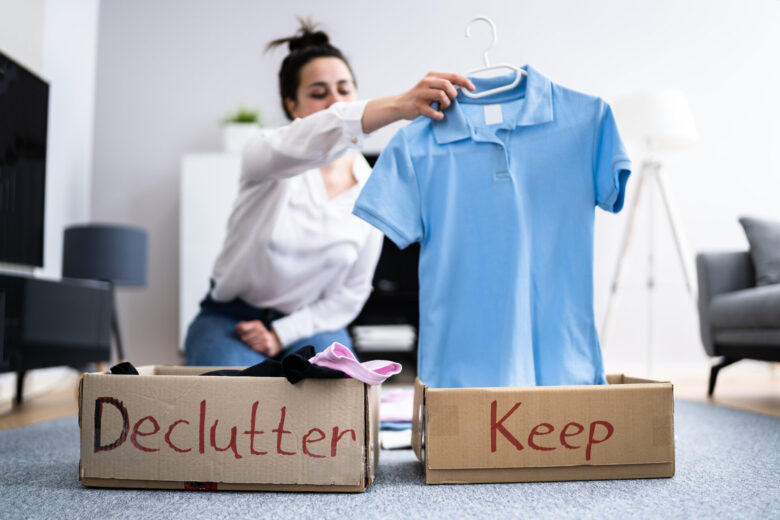
A Detailed Packing Timeline – What to Pack and When
Embarking on the process of moving internationally requires meticulous planning. By breaking down the process into manageable intervals, you can ensure a smoother transition. Here’s a detailed timeline to guide you through this journey.
6-4 Weeks Before the Relocation
At this stage, focus on decluttering and sorting through belongings. It’s the perfect time to decide what will accompany you to the new home and what can be left behind. Begin with non-essential items – those you won’t need in the next couple of months, such as seasonal clothing pieces, decorative items, and books.
This period is also ideal for planning the sale or donation of items you no longer want or need. Hosting a garage sale or listing items online on sites like Craigslist can be a productive way to declutter and possibly earn some extra cash for the move. Simultaneously, identify local charities where you can donate items to ensure they find a new purpose.
4-2 Weeks Before the Relocation
As the relocation gets closer, packaging efforts should intensify, shifting focus to items you use less frequently. This includes guest bedroom linens, extra kitchen dishes and cookware, and seasonal tools or equipment. It’s also crucial to secure moving services during this time if you haven’t already.
Research and book a reputable international moving company, such as Schmidt International Relocations, to avoid last-minute availability issues. Additionally, start preparing for change-of-address notifications. Notify the bank, utility providers, and government agencies of the impending move to ensure a seamless transition of services and correspondence to your new address.
The Final Stretch - 2 Weeks to Moving Day
In the last two weeks before the relocation, packing should be nearly complete, with a focus on essentials and daily-use items remaining. Create a survival kit that includes necessities for moving day and the first few days in a new home, such as toiletries, a change of clothes, medications, chargers, and important documents.
This kit will be invaluable as you settle in. Now is also the time to double-check arrangements with the chosen moving company, confirming dates, times, and any last-minute details to ensure everything proceeds as planned. Last-minute packaging tips include keeping a detailed inventory of boxes and their contents and making sure essential items are easily accessible upon entering a new home.
Special Considerations for Different Types of Moves
When planning a relocation, it’s essential to think about the unique challenges and requirements of the specific situation. Whether you’re moving across town or across the world, each type of relocation demands a tailored approach.
Long-Distance vs. Local Moves
The key difference between long-distance and local moves lies in their timelines and complexity. For long-distance moves, it’s advisable to start the packing process even earlier than you might for a local move. Given the additional logistics and potential for complications over greater distances, giving yourself extra time ensures that everything is packed securely and organized well before the moving date.
Start decluttering and boxing up non-essential items up to 8 weeks in advance for a long-distance move, compared to the 6-4 weeks recommended for local moves.
This extra buffer accounts for the complexities of transportation, potential delays, and the need for more strategic packing to protect belongings over the longer journey.
Handling Fragile and Valuable Items
Packaging delicate items such as antiques, artwork, and electronic devices requires special attention and care. Regardless of the distance of the move, these items should be one of the last categories you pack to minimize the time they spend in boxes. However, starting at the last minute can lead to rushing and potential damage. Aim to pack these items about two weeks before the relocation, giving you ample time to wrap and protect them properly.
For exceptionally valuable or fragile items, enlist professional packing services. These experts have the skills and materials to ensure that even the most precious belongings are packed with the utmost care and protection. Investing in professional packers for these items can provide peace of mind and significantly reduce the risk of damage during transport. Remember, the safety of your valuable items is paramount, and professional services are well-equipped to handle their transportation securely.
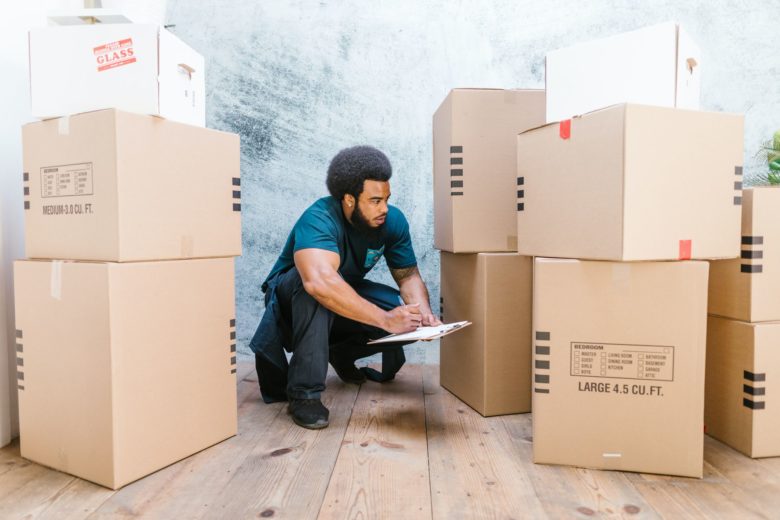
Utilizing Professional Packing Services
Navigating the complexities of relocation can be overwhelming, but enlisting the help of professional packing services can significantly ease this burden. These services not only offer expertise in safely boxing up belongings but also provide the convenience and efficiency that can transform the relocation experience.
When to Schedule Professional Packers
Determining the optimal time to schedule professional packers is crucial for a seamless and efficient move. Ideally, you should book these services at least a month in advance, especially if you’re planning to relocate during the peak season, which typically spans from May through September.
Professional packers have busy schedules, and their availability can become limited quickly. To ensure you secure the services for a preferred date, early engagement is key. Be mindful of the moving overseas timeline and work backward to decide when the packers should come.
The Advantages of Professional Assistance
The benefits of hiring professional movers extend far beyond mere convenience. One of the primary advantages is the efficiency with which they can pack the entire household. Trained professionals are adept at securely packaging items, utilizing the right materials and techniques to safeguard belongings. This efficiency not only saves you time but can also significantly reduce the moving stress.
Safety is another critical benefit. Professional packers have the expertise to handle fragile and valuable items, ensuring they are well-protected during the relocation. This expertise minimizes the risk of damage to belongings, offering you peace of mind. Ultimately, the decision to hire professional packers could be one of the best investments you make in the relocation, providing a smooth transition with minimal hassle and maximum security for your possessions.
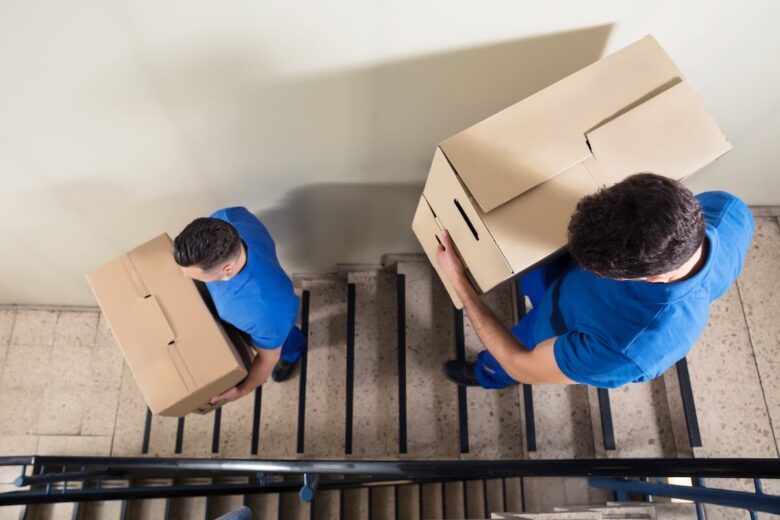
Mastering the Move – The Art of Timely and Strategic Packing
Ultimately, the key to a stress-free and efficient relocation lies in strategic timing and planning. Whether you’re embarking on a long-distance journey or making a shorter local relocation, starting the process early and pacing yourself with a clear plan can make all the difference.
And if you want to ensure a seamless and timely move, it’s always best to leave it up to professionals. So, contact us at Schmidt International Relocations and allow our team to not only safely pack all your belongings, but to also sagely transport them either by sea or by air freight.
FAQ
When Should I Start Packing to Move?
The answer to the question of when should you start packing to move depends on the complexity of the relocation. Start eight weeks in advance for long-distance moves and 6-4 weeks for local moves, beginning with non-essential items.
What Items Should I Pack Last?
Pack an essentials box for moving day with items like toiletries, medications, a few changes of clothes, important documents, and chargers last, ideally in a clearly labeled “essentials” box or a personal overnight bag.
Can Professional Packers Help With the Entire Packing Process?
Yes, professional packers can handle the entire process, from securely wrapping fragile items to boxing up the entire household, often offering customized services based on your needs.
What Are Some Tips for Packing Efficiently?
Declutter beforehand, use sturdy boxes, label everything clearly, pack room by room, and keep an inventory of packed items to stay organized.
How Do I Keep Track of Everything I’ve Packed?
Keep a detailed inventory list of what’s in each box, number the boxes, and consider taking photos or making detailed notes, especially of valuable items.

